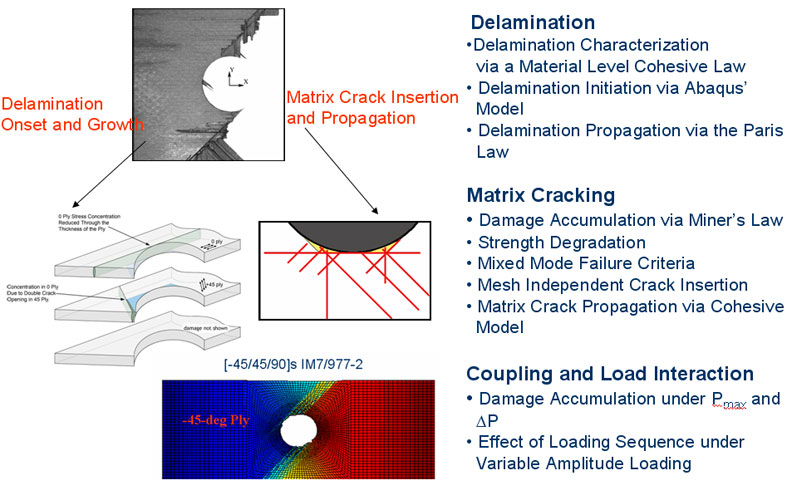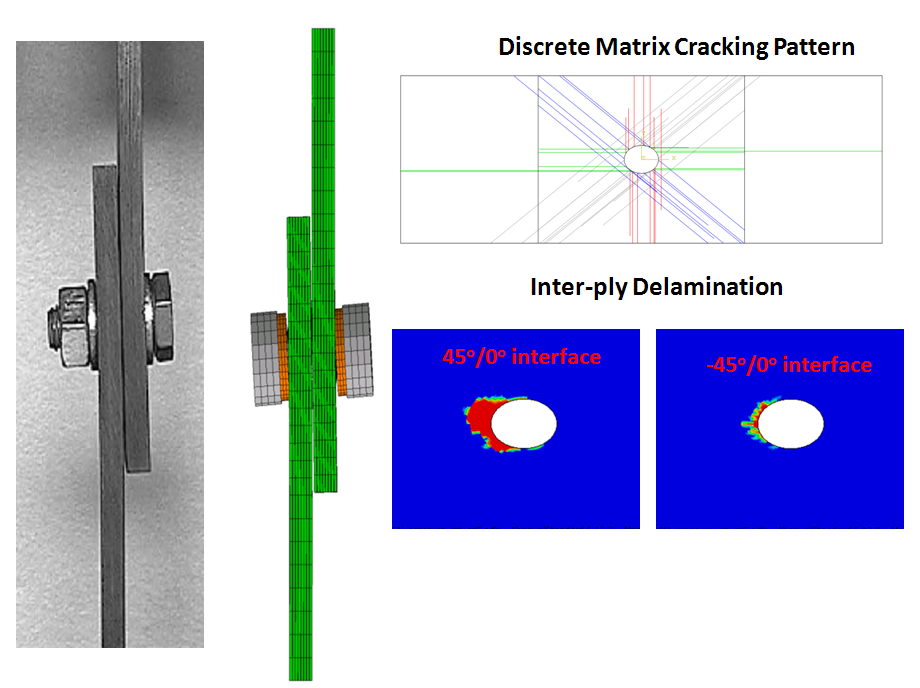
Products
GEM develops powerful toolkits to address complex engineering issues.
DCN
Global Engineering and Materials, Inc. (GEM) along with its team members, University of Dayton Research Institute (UDRI), LM Aero, and Sikorsky Aircraft, is developing a Discrete Crack Network (DCN) module in Abaqus for high fidelity static strength and fatigue life prediction in bolted composite structures. The DCN is formulated by combining mesh independent matrix cracking with interface delamination modeling. The toolkit is developed under the sponsorship of NAVAIR, the Air Force Research Laboratory, and NASA.
DCN can be used to predict the discrete damage evolution associated with matrix cracking and delamination of a single bolt composite joint. The stacking sequence of the carbon fiber/expoxy laminates is taken as [455/05/-455/905]s. A nominal 8mm diameter titanium alloy bolt together with a steel nut and washers were used to connect the two laminates in a single lap joint configuration as shown in the figure below. The distribution of distribution of matrix cracking and selected interface delamination is also shown in the figure.
The DCN toolkit can be used to assist in design , certification, and decision making on the optimal selection of a bolted composite structure for a given combination of the following design parameters:
- geometric factors
- material properties
- coefficients of friction
- bolt shape
- clearance
- torque
Key modeling capabilities
- Automatic insertion of matrix cracks independent of an existing FEM mesh
- Simulation of delamination and matrix cracking evolution and their interaction
- Implementation of a regularized X-FEM for efficient numerical integration of the cracked element
- Open and filled hole strength prediction in laminated composites under static and fatigue loading
- Prediction of residual strength and life under variable amplitude cyclic loading for bypass and bearing loading conditions


